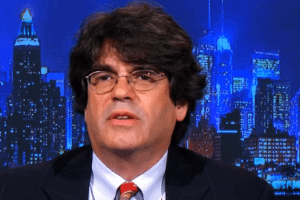
FDA Misses Conflicts-of-Interest,The Health and Human Service’s Inspector General’s Office has revealed that the U.S. Food and Drug Administration (FDA) is not reliable when it comes to finding drug research conflicts of interest, a huge issue these days between medical professionals and industry. The Canadian Press is reporting that poor and late information and loopholes […]

FDA Misses Conflicts-of-Interest,The Health and Human Service’s Inspector General’s Office has revealed that the U.S. Food and Drug Administration (FDA) is not reliable when it comes to finding drug research conflicts of interest, a huge issue these days between medical professionals and industry. The Canadian Press is reporting that poor and late information and loopholes are to blame.
The deep financial ties between doctors, medical researchers, and the drug industry have been making headlines in recent months with some highly regarded doctors and researchers facing enormous criticism over financial arrangements with industry. Now, it seems that the FDA is also, and not surprisingly, part what appears to be a widespread and growing problem. According to the Canadian Press, the HHS has said that the FDA’s screening system is wanting and that it “found a number of limitations in FDA’s oversight, leaving FDA unable to determine whether (drug companies) submit financial information for all clinical investigators.” According to the paper, investigators looked at 118 new drug applications, which received FDA approval in 2007.
To help ensure no conflict-of-interest opportunities present themselves, the government mandates all such conflicts be reported by clinical researchers responsible for reviewing medications in advance of drug companies applying for FDA approval. The report found problems. For instance, reported the Canadian Press, about 42 percent of the applications did not contain appropriate information on financials and less than one percent of the research staff actually reported potential conflicts. The report found that such issues “Could result in FDA being unaware of a clinical investigator’s financial interest, and thus unable to gauge its potential bias on clinical trial results.” As matter-of-fact, the report found that only 206 of the nearly 30,000 clinical investigators disclosed potential financial conflicts.
The Canadian Press pointed out that a study published by the Journal of the American Medical Association (JAMA), found that about 23-38 percent of university researchers had a financial tie with industry. Recently, three such cases made headlines.
Dr. Joseph Biederman, a prominent child psychiatrist who advocates antipsychotic use in bipolar children, suspended financial relationships with pharmaceutical companies pending an investigation, reported the Boston Globe. Fierce Healthcare said Emory University stripped the chairmanship from psychiatric researcher Charles Nemeroff when an investigation revealed he had not reported significant amounts of industry-sourced income. And, Harvard Medical School professor David Sinclair stepped down from Shaklee’s scientific advisory board after he helped promote a product claiming to possess life-extending properties.
Although it is understood that industry hires scientists and physicians to test drug safety and efficacy for later use by the FDA when drug approval is sought, strict procedures—including those surrounding financial information—are in place, but are clearly not always followed. Worse, said the Canadian Press, because the FDA does track researchers, it is unable to know out when a conflict-of-interest situation occurs. Also, there is a significant loophole in which drug companies do not have to advise the FDA if they can certify that “due diligence” was used in the gathering of researcher information and were unable to obtain such data; financial information is also often late, with data submitted with drug approval requests, long after clinical testing is completed.
The personal injury attorneys at Parker Waichman LLP offer free, no-obligation case evaluations. For more information, fill out our online contact form or call 1-800-YOURLAWYER (1-800-968-7529).


